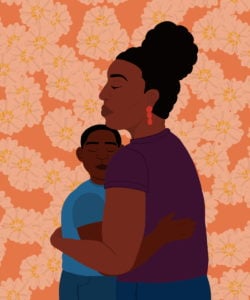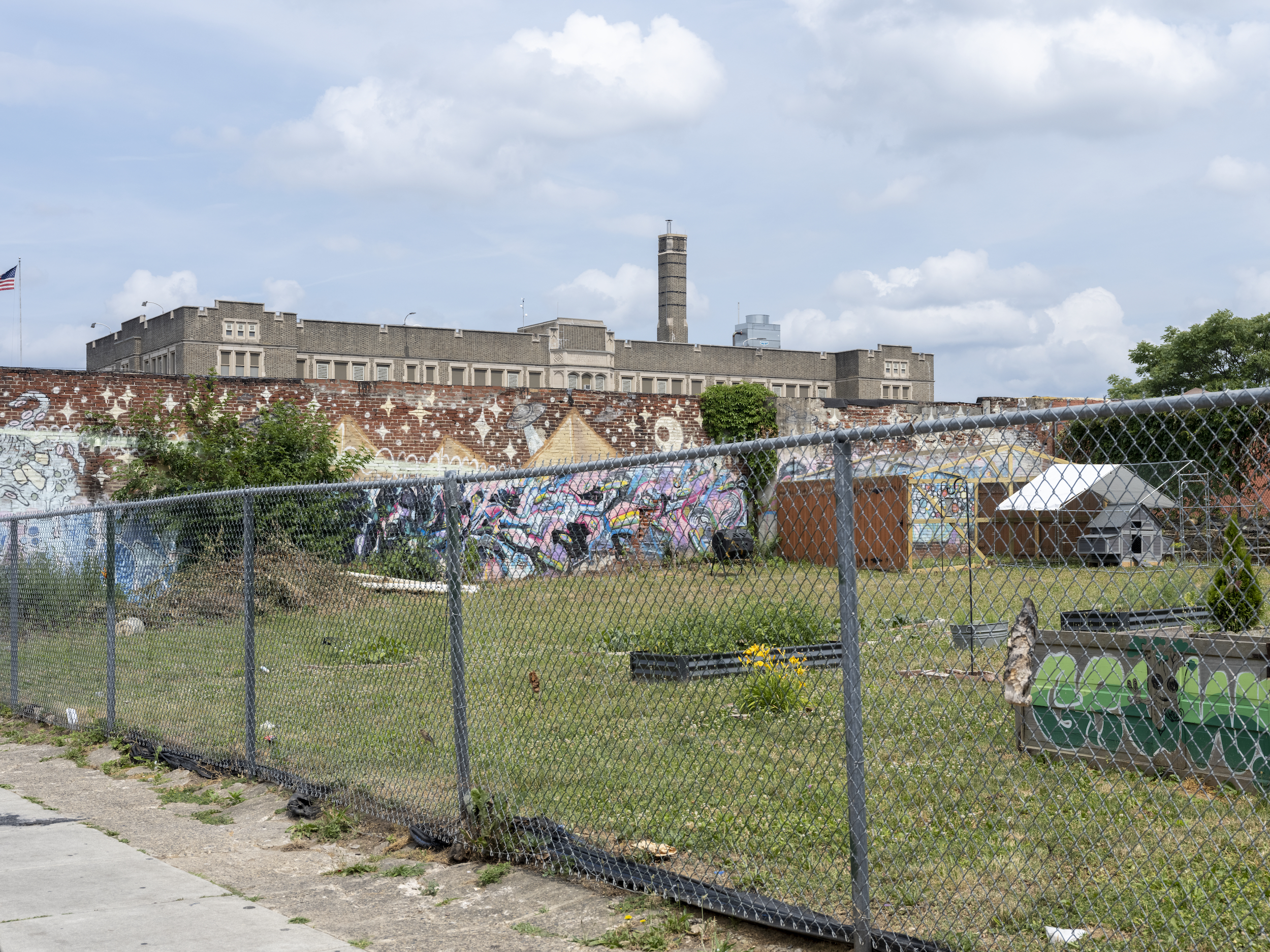Do Philadelphia’s mayoral candidates — a Black woman and an Asian American man — have specific plans to address the crisis of Black males being swept up in the city’s gun violence crisis?
How will the city and its new top cop repair the damage caused by the recent killing of a North Philly man by an officer who has been charged with murder?
How should the city continue to drive down the homicide rate, which is 20 percent lower than at this time last year?
These are the types of public safety issues that grassroots anti-violence advocates told The Trace they want to hear about ahead of the November 7 general election. But to date, just one debate has been scheduled between presumed frontrunner Cherelle Parker, the Democrat, and David Oh, the Republican. During the one-off scheduled for October 26 on KYW Newsradio 1060 AM, the candidates’ views on combating gun violence will likely compete for time with talk of taxes, gentrification, school reform and funding, economic development, and the stagnant opioid crisis, among other issues.
Having only one debate, some community members said, would deprive Philadelphians of the opportunity to learn exactly how the city’s next chief executive proposes to combat a gun violence crisis that has claimed more than 1,700 lives and left nearly 6,500 injured since 2020.
The Reverend Mark Kelly Tyler, pastor of Mother Bethel A.M.E Church, said if debates are limited, the candidates should focus on a small number of key issues like public safety, which is top of mind for many Philadelphians.
“It feels like, to a lot of people, that the city’s just not a safe place right now. So, I would really be interested in knowing what their philosophical belief is in what makes the city safe,” he said. “Does that mean throwing another 10,000 police officers on the streets, creating a police state? Does that mean putting more investments into people who are unemployed or underemployed to put them back to work?”
Tyler, political director of the interfaith movement POWER, (Philadelphians Organized, to Witness, Empower, and Rebuild) said the debate will not be useful unless the candidates focus and use the forum wisely.
Bilal Qayyum, president of the Father’s Day Rally Committee, a community organization that works to reduce violence by teaching Black men conflict resolution skills, said he wants to hear the candidates have a serious conversation about the plight of Black men, who account for the most victims and perpetrators of gun violence, according to city data.
You are not alone
If you or someone you know has been affected by gun violence in Philadelphia, check out our Up the Block resource guide.
“We have to have a bold agenda to address Black males in the city of Philadelphia,” Qayyum said. “Black males are the ones in prison. Black males are the ones that are doing the shooting, the majority, unfortunately. And Black males are the ones being shot. A major agenda item has to be getting them the skills and support so they can get good-paying jobs. That, and education, are the two most crucial issues to address violence in the city of Philadelphia.”
Oh, 63, who like Parker resigned from the City Council to enter the mayor’s race, said he believes his opponent was dodging debating him because she sees herself as unbeatable in a city where Democrats outnumber Republicans seven to one.
John Dolan, a Parker spokesperson, said that claim is “laughable” given the dozens of debates she participated in leading up to the May primary. “She was one of the few candidates that put out a comprehensive gun safety and community policing program,” he said.
Oh has called for 10 debates — one in each council district. Dolan said Parker is working on scheduling more events.
“Because we are changing mayors and we are in a very difficult time with all this murder and violence and we’ve come out of the pandemic and George Floyd, people are looking for leadership,” said Oh, who is also a former assistant district attorney.
Beyond cops
Looking at what caused last year’s reduction in shootings — and figuring out how to maintain it — will be central to any mayoral discussion about gun violence.
Some, like Qayyum, attribute the dip to grassroots organizations like his that used city grant money to steer teenage boys and men away from violence and idleness. Mayoral candidates must talk and think beyond making the Police Department the center of their crime-fighting strategy, Qayyum said.
“Homicides are down because of the work that the neighborhood-based, anti-violence groups are doing daily,” he said, adding that the next mayor should commit to continue funding the city’s Community Expansion Grant program and others, while paying close attention to how the money is disbursed and spent.
“The police are not going to solve the violence in Philadelphia because the police respond to violence after it happens, in most cases. Philadelphia has a history of shootings over arguments. Police don’t know that’s going to happen,” he said. “We need the police, but we need a joint effort between neighborhood-based, anti-violence groups working in conjunction with the Mayor’s Office and the police, courts and District Attorney’s Office.”
Charles Reeves Jr., president of the Residents Action Committee II, which serves the Grays Ferry community, said the candidates need to address how they will cut red tape that he believes hampers community groups from successfully using the money in their communities, and from receiving grants at all.
“Violence prevention grants is a mess. You got to go through too much stuff to get it, then there’s so many rules,” he said. “So, I would ask them … what they would do to improve that program.”
Reeves agreed that the public needs to hear from Parker and Oh on how they intend to protect the city’s public school district and city recreation centers from violence. “I know they can’t control the school board, but if you want to keep kids out of trouble you have to help them and protect them,” he said.
Reuben Jones, founder of Frontline Dads, an anti-violence organization that provides young men with mentoring and leadership development training, said he, too, wants to hear where the candidates stand on supporting community organizations’ use of credible messengers, on declaring a gun violence state of emergency, and on providing funding to the 57 Blocks Coalition.
“I would ask both of them, what resources are they willing to allocate to the 57 Blocks Coalition, the most violent blocks across the city,” he said. “There’s a $100 million ask to specifically put toward fighting gun violence in those areas that account for 30 percent of the city’s gun violence.”
Among the most important things the next mayor must do to continue driving down the violent crime rate will be to foster a team spirit among law enforcement partners and community organizations, said Stanley Crawford, executive director of the Black Male Community Council of Philadelphia.
“If the mayor, police commissioner, [police officers’ union], and the DA are not on the same sheet of music, you’re going to have what you got,” he said. “The mayor will have to be able to say to all these entities that took an oath to protect and serve the citizens of Philadelphia, you cannot put politics, ideology and petty differences above the safety and protection of the community.”
Getting clarity on stop and frisk
Oh and others said they’d like to hear more from Parker about her embrace of stop and frisk, the police tactic of stopping people on the street and patting them down for weapons. Although stop and frisk is legal when done correctly, police officers can easily abuse their authority when using the tactic, resulting in violating people’s constitutional rights, critics believe.
They point to research that found that in Philadelphia, where class-action lawsuits have forced the city to reform how officers interact with people, Black people are over 50 percent more likely than white people to be stopped without reasonable suspicion, and Black people are 40 percent more likely than white people to be frisked without reasonable suspicion.
“My first question for Cherelle Parker is on stop and frisk. I want her to fully explain her position. That’s going to be a hot topic for her. She’s tried to back off of it a little bit, but she’s committed to stop and frisk,” said Jones, of Frontline Dads.
“She talks about having a Black son, but we know that Black men are disproportionately impacted through this practice and it serves to criminalize Black men. So, why are you in support of it when you know they found guns in probably less than 1 percent of those stops?” Jones asked Parker.
“I am publicly against it, I have said so,” Oh said. “I understand there is a constitutional stop-and-frisk, but not something you can use proactively, and I don’t think she can explain it because the majority of police officers are white and we’re going to send them to predominantly Black neighborhoods where they’re going to be instructed to stop and frisk young Black men. That’s not going to go well,” said Oh, who survived being stabbed during a 2017 attempted robbery in front of his Southwest Philly home.
Parker, 50, a former school teacher and state representative, has said that she supports police officers stopping and frisking suspects when they have reasonable suspicion to do so.
“Stop and frisk never went away,” Parker told The Trace during the primary race. “It is here as a result of a court precedent, Terry vs Ohio. The constitutional employment of this policing tool is something that is necessary in the city of Philadelphia.”
Parker will not discuss filling the police commissioner position nor any other personnel decisions until after the election, Dolan said.

This story is a part of Every Voice, Every Vote, a collaborative project managed by The Lenfest Institute for Journalism. Lead support is provided by the William Penn Foundation with additional funding from The Lenfest Institute, Peter and Judy Leone, the John S. and James L. Knight Foundation, Harriet and Larry Weiss, and the Wyncote Foundation, among others. To learn more about the project and view a full list of supporters, visit www.everyvoice-everyvote.org. Editorial content is created independently of the project’s donors.


